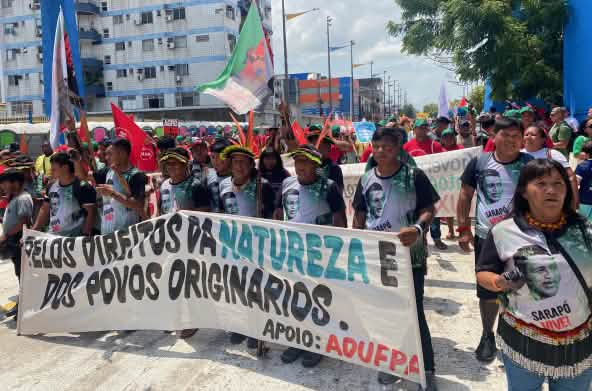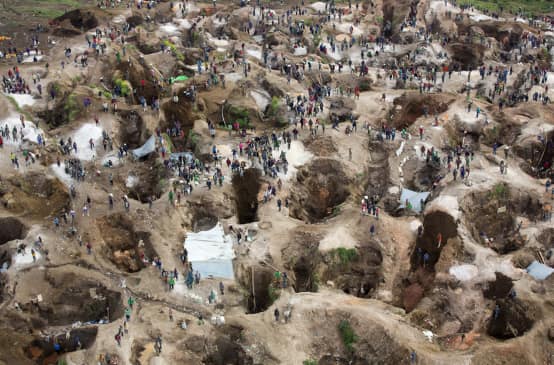Completed campaign
‘Responsible’ Soy: misleading consumers
Dear consumer, Supermarkets and the food industry want you to believe their products are good for you and produced with respect for nature and environment. But please don’t be misled. A new label is about to be launched for so-called ‘responsible’ soy. Unfortunately it is not responsible at all.
Almost all non-organic meat, eggs and dairy sold in supermarkets comes from animals fed on genetically modified (GM) soy. That’s important for you to know, but it’s not on the label. Even worse, this soy will soon be called ‘responsible.’
The label has been developed by the Round Table on Responsible Soy (RTRS). The RTRS consists mainly of companies that have a strong interest in expanding the soy industry. Members range from soy producers and grain dealers to the biotech, pesticide, animal feed and oil sectors. They include BP, Shell, Cargill, Bayer, Syngenta, and Monsanto. A few NGOs are also on board, notably the World Wildlife Fund (WWF).
The ‘responsible’ soy scheme will not reduce the massive pesticide use that poisons people and the environment in South America. It will not stop land conflicts. It will not even stop deforestation. It will definitely not reduce soy imports. But it will create a ‘green’ label for GM crops. For the first time, a genetically modified crop, designed to be sprayed with massive amounts of pesticides, will be labelled ‘responsible’.
That is why environmental and social organisations are writing to supermarkets and food companies, asking them not to mislead their customers. We – Friends of the Earth International, the Global Forest Coalition, Rettet den Regenwald (Rainforest Rescue), European Coordination Via Campesina, Food and Water Europe and many others – strongly oppose the RTRS’s attempt to greenwash soy. We want to reduce Europe’s dependence on imported soy and call for radical changes in the way food is produced.
Please join us and tell the supermarkets that you don’t accept the RTRS’s misleading label. Sign the form and your message will be sent to supermarkets and food companies all over Europe. Please distribute this action and inform your friends as well. Thank you very much for your support.
For more information on the impacts of soy production, see http://www.toxicsoy.org
Dear Sir or Madam:
This year a new label will be launched for so-called ‘responsible’ soy. However, the criteria proposed by the Round Table on Responsible Soy (RTRS) do not guarantee any level of ‘responsibility’. Soy monocultures can still expand at the expense of forest and small farms; massive pesticide spraying will continue to poison people and the environment.
Irresponsible soy production in the South will continue
Soy for animal feed is grown in large monocultures in South America. Massive amounts of toxic pesticides are used on the mostly genetically modified (GM) crop. Local communities and their environment are poisoned, and children are especially vulnerable. To increase soy production, small farmers and indigenous people are pushed from their land and forests and valuable natural areas are destroyed. RTRS soy will not stop this and labels like Soja+ are even weaker. Many social and environmental organisations have voiced clear opposition to the ‘responsible’ label.
Irresponsible animal industry in the North will continue
Over 34 million tons of soy are imported into Europe each year. Most of it is used to feed animals in factory farms. These are highly polluting to water, soil and air and cause much animal suffering. Most of the industrially produced dairy, eggs and meat comes from animals fed with GM soy.
In fact, most people don’t even know that they indirectly consume GM products, because it is not on the label. Exploiting the natural resources of the South to enable an over-production of animal products in the North can never be responsible or sustainable. Instead, factory farming should be abandoned and animal feed should be locally produced.
Stop the greenwash
Labels on food are meant to inform people, not to confuse or mislead them. Soy monocultures are not responsible. The RTRS label could therefore be seen as label fraud. Don’t buy the greenwash message. Instead it would be better to inform consumers about what they are buying by introducing a ‘fed with GM soy’ label for meat and dairy products.

